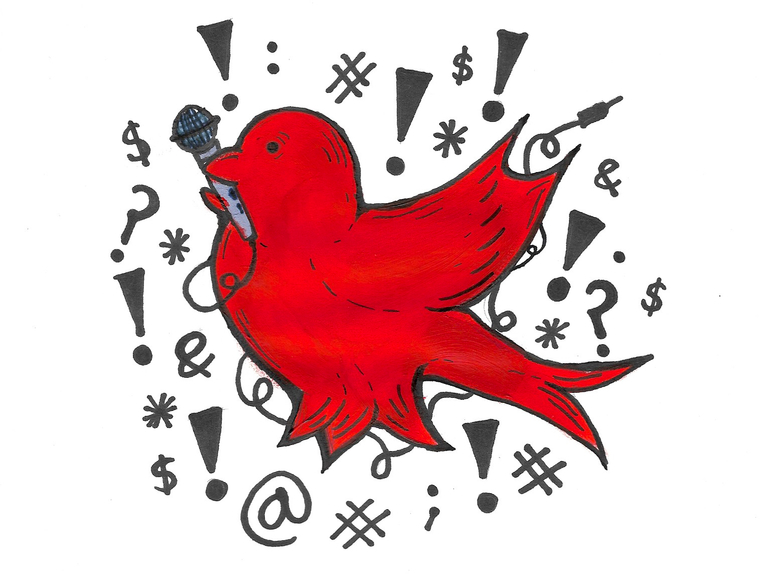The 2018 Campus Freedom Index (CFI) bestowed the Students’ Society of McGill University (SSMU) an F grade for its lack of free speech protections and a C for its political practices in 2018. The Justice Centre for Constitutional Freedom (JCCF) sponsors the CFI, an annual assessment of the successes and failures of campus free speech in Canada. But, the CFI is by no means impartial and leans to the right. Its criticism of SSMU merely emphasizes conservatives’ refusal to acknowledge that free speech protects progressives and right-wingers equally.
The CFI points to SSMU’s Equity Policy as its biggest flaw, citing its support for safe spaces and disapproval of microaggressions. These things, the CFI says, hinder free speech. However, while a right to free speech is not explicitly entrenched in SSMU’s constitution, Article 3.2 of the Equity Policy states that the policy shouldn’t detract from students’ right to engage in open discussion of controversial opinions. Safe spaces actually help marginalized people share their stories and opinions, promoting equitable free speech.
Beyond the Equity Policy, the CFI points to SSMU’s politics as another vehicle for suppressing free speech. Taking political stances allegedly diminishes the university’s freedom of expression. SSMU represents the entire student body, but it is an elected body and, therefore, inherently political. The society has a long history of political expression and has explicitly taken an anti-oppressive mandate since 1989. It announced its support for Black Lives Matter in 2016, participated in anti-austerity protests in 2015, and called out McGill’s response to sexual assault reports this past April. All of these political stances actively defend the free speech rights of marginalized people.
Former SSMU vice president External Marina Cupido’s Facebook post about the newly elected Coalition Avenir Quebec (CAQ) government was accused of infringing on campus free speech. Cupido faced considerable backlash for calling the CAQ ‘racist’ and ‘xenophobic,’ and for alleging that the party has connections to white supremacists. Regardless of their failure to cite their sources or confer with fellow executives, Cupido had a right to take a stance, even on the official SSMU External Affairs Facebook page. The post may have been ill-advised, but they were elected to a political executive office by a majority of voters. Students who did not feel represented by Cupido’s statement should at least respect the result of the democratic process.
The narrative that only leftist voices inhibit freedom of speech is tired and biased. Beyond McGill, conservatives have long bemoaned the plight of free speech on college campuses. One such conservative is Rick Mehta, former professor in Acadia University’s Department of Psychology. In March, Mehta prompted controversy after defending Conservative Senator Lynn Beyak’s right to post racist remarks on her government website. Beyak shared arguments from Canadians criticizing indigenous communities for receiving government aid and asking for reparations for injustices like the residential school system. Statements like hers perpetuate harmful stereotypes, and Sen. Beyak was rightfully removed from the Conservative caucus for platforming them. But, Mehta saw himself as a counterbalance to liberal bias on campus, and so, he stood up for Beyak.
While Mehta said that he does not support racist comments, he attacked the Conservative Party for impeding her right to free speech. But, even if he does not believe in the far-right sentiments that he defends, Mehta was magnifying them. Amplifying hyper-conservative and racist voices does nothing to diversify mainstream conversations—it only reinforces historically-entrenched traditions and beliefs.
Mehta’s story challenges the dominance of conservative ideology in the free speech arena. If right-wing ideologies perpetuate traditional ways of thinking, which have historically excluded marginalized people from public debate, then they stand to hinder free speech equally as much as left-wing ideologies.
The right to free speech does not guarantee freedom from criticism. Conservatives like Mehta and the JCCF need to stop conflating valid criticism of right-wing belief systems with the infringement of fundamental human rights. As much reason as there is to criticize SSMU, claiming that the organization hinders free speech by promoting marginalized voices and leftist politics is absurd. Students should challenge these arguments, which are made in bad faith and without a comprehensive understanding of free speech, to create a productive space for discourse that includes minority voices.










Hi Sydney,
Can you provide some more information about the “refusal to acknowledge that free speech protects progressives and right-wingers equally”. You haven’t provided any examples of conservatives detracting from freedom of speech. Safe spaces make it so people who disagree cannot voice that opinion and recognizing that is only allowing for more freedom of speech…
The policy is great for promoting discourse of controversial topics but disapproving of “micro aggression” inherently makes it so I can’t (well I can but if the organization already disapproves, I wouldn’t exactly go there for dialogue) make the argument of “if you’re in the West and at McGill then how marginalized are you really and why should it be illegal to offend you?” Doesn’t this take away from my right to speech?
Also they are not worried about fundamental human rights. Nowhere are these rights documented for all humans and so they can’t really be infringed. Freedom of speech is a right (using the normal definition) under the U.S constitution designed to protect the against censorship from the Government. Canadians have a right to freedom of expression but the government can limit free expression, which is probably why a freedom index exists (designed to track what is considered to be a “right” for all humans but not a legal obligation from the state to monitor oppression or censorship).
How can you make the claim Mehta is “amplifying” hyper-conservative racist voices instead of defending her freedom of speech when you say he “prompted controversy after defending Conservative Senator Lynn Beyak’s right to post racist remarks”.
Are you sure you’re not the one conflating? Are you sure SSMU is the one without a comprehensive understanding of free speech?
It’s my opinion that the right-wing ideology perpetuates freedom of speech. It is the racist people who choose to exercise that freedom of speech that suppresses minority voices and so it isn’t the ideology per se.
“Also they are not worried about fundamental human rights. Nowhere are these rights documented for all humans and so they can’t really be infringed.”
UN Declaration of Human Rights. Article 19 specifically guarantees freedom of expression.
“Canadians have a right to freedom of expression but the government can limit free expression, which is probably why a freedom index exists.”
Governments can limit expression only in accordance with Section 1 of the Charter, which is a high legal hurdle to clear. The freedom index has little to nothing to do with government infringements. It exists because a political activist wanted a political tool to advance a political agenda: namely, providing outrage fodder for partisans and serving to undermine academic authority among those for whom it is convenient to be unable to distinguish between the deliberative pursuits of universities and the sophomoric pursuits of student unions. It’s a shame the Tribune gave it any attention.
That was a pathetic defense of freedom of expression. It was simply another attack on un-politically correct views. What a logical mess.
I can’t even begin to express how disappointed I am in the way you clearly sensor and discriminate against right-wing students. You punish students, mostly white students, for speaking their minds. Be a better school.